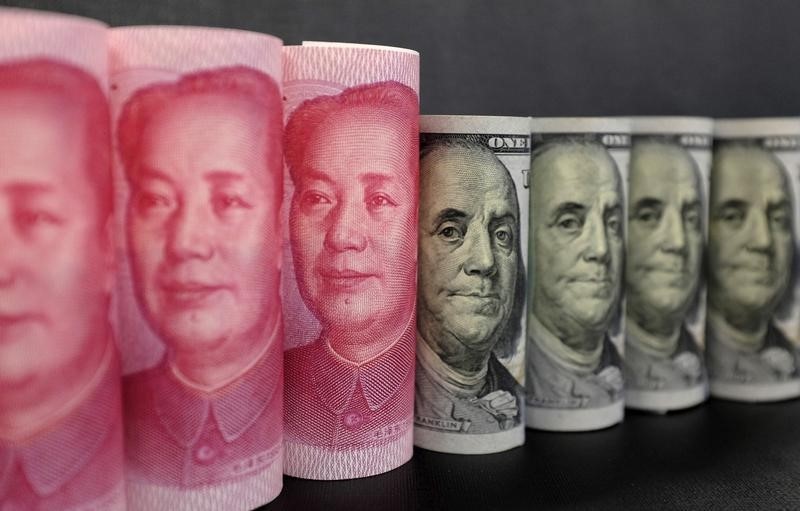HANGZHOU, China (Reuters) - China and the United States on Sunday committed anew to refrain from competitive currency devaluations, and China said it would continue an orderly transition to a market-oriented exchange rate for the yuan
A joint "fact sheet", issued a day after U.S. President Barack Obama and his Chinese counterpart Xi Jinping held talks, also said the two countries had committed "not to unnecessarily limit or prevent commercial sales opportunities for foreign suppliers of ICT (information and communications technology) products or services".
While China and the United States cooperate closely on a range of global issues, including North Korea's disputed nuclear program and climate change, the two countries have deep disagreements in other areas, like cyberhacking and human rights.
Both countries said they would "refrain from competitive devaluations and not target exchange rates for competitive purposes", the fact sheet said.
Meanwhile, China would "continue an orderly transition to a market-determined exchange rate, enhancing two-way flexibility. China stresses that there is no basis for a sustained depreciation of the RMB (yuan). Both sides recognise the importance of clear policy communication."
China shocked global markets by devaluing the yuan in August 2015 and allowing it to slip sharply again early this year. Though it has stepped in to temper losses in recent weeks, the currency is still hovering near six-year lows against the dollar.
Xi and Obama met in Hangzhou in eastern China where leaders from the world's 20 leading economies, the G20, were gathering for a summit on Sunday and Monday.
Foreign business groups say China's pending cyber rules, including a cyber security law that could be passed this year, include provisions for invasive government security reviews and onerous requirements to keep data in China.
They say the regulations would create barriers to market entry for foreign companies and impair the country's security by isolating it technologically.
Global business groups spanning finance, information technology, insurance and manufacturing have urged China to revise its draft rules, and have pressed the U.S. government to raise the issue with Beijing.
The fact sheet said the two sides had committed to policies that "should treat technology in a non-discriminatory manner (and not) unnecessarily limit or prevent commercial sales opportunities for foreign suppliers of ICT products or services".
Other points from the fact sheet:
- Both sides commit to use all policy tools – monetary, fiscal and structural – to foster confidence and strengthen growth; fiscal policy should be used flexibly to strengthen growth, job creation and household demand.
- Building on current progress, China is to deepen supply-side structural reforms with a comprehensive strategy, including state-owned enterprise reform, giving full play to the role of the market and legal mechanisms, to reduce corporate debt, including SOE debt.
- The two sides recognise that structural problems, including excess capacity in some industries, have caused a negative impact on trade and workers; both countries recognise that excess capacity in steel and other industries is a global issue which requires collective responses.
- Both sides recognise that the effective and balanced protection of intellectual property rights will be beneficial to promote innovation.

- They welcome the completion of peer review reports on the fossil fuel subsidies of the United States and China.